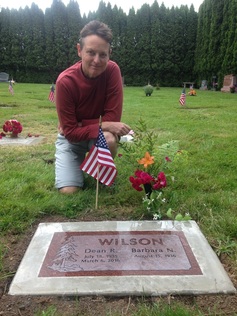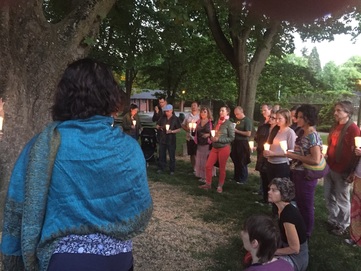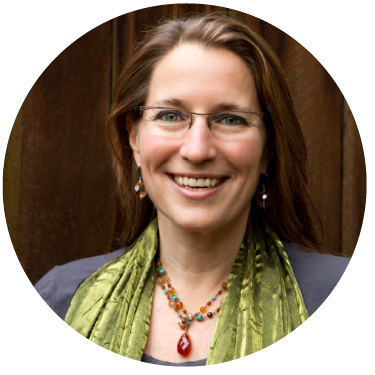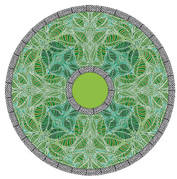Before you know kindness as the deepest thing inside,
you must know sorrow as the other deepest thing.
You must wake up with sorrow.
You must speak it till your voice
catches the thread of all sorrows
and you see the size of the cloth.
~ from "Kindness," a poem by Naomi Shihab Nye
 Memorial Day with Amber's Dad
Memorial Day with Amber's Dad I've just taken perhaps the longest break from my blog since I committed at the start of 2013 to write 50 posts in a year's time.
The death earlier this month of my close friend/ neighbor/ former mentor Bill has caught the thread of all my sorrows.
Bill's diagnosis with a rare and aggressive form of leukemia came not 24 hours after Marcy's five-hour memorial service last August. During the six months Bill spent in a clinical trial (at a cancer center dubbed the City of Hope) in California, my father-in-law Dean Wilson suffered several health crises. In March he died less than 48 hours after entering hospice. Two days after we buried Dean, Bill returned home for what turned out to be his last six weeks of life.
On the surface, these seem clear examples of what Francis Weller calls the First Gate of Grief: the recognition that everything we love will die. In The Wild Edge of Sorrow Weller enumerates "Five Gates of Grief" (summarized here). The image of the gate implies something linear or sequential - you pass through one gate at a time, entering into what Weller calls "the communal hall of grief".
I find myself at the threshold of all five of these portals. The threads of sorrow I've got ahold of feel like they're woven into the same cloth. As Weller says, citing Nye's poem, "The cloth is immense."
I recognize intimately the Second Gate: The Places That Have Not Known Love; the Third Gate: The Sorrows of the World; and the Fifth Gate: Ancestral Grief. But the warp upon which all these threads serve as weft is Weller's Fourth Gate: What We Expected and Did Not Receive – the grief of not being born into a village.
Weller quotes T.S. Eliot's lament, "Once upon a time, we knew the world from birth," and writes:
We are born expecting a rich and sensuous relationship with the earth and communal rituals of celebration, grief, and healing that keep us in connection with the sacred....This is our inheritance, our birthright,which has been lost and abandoned....This lack is simultaneously one of the primary sources of our grief and one of the reasons we find it so hard to grieve. On some level, we are waiting for the village to appear so we can fully acknowledge our sorrows.
 Neighborhood candlelight walk the night after Bill's death
Neighborhood candlelight walk the night after Bill's death And I've also been a faithful witness to how each of these deaths - along with the burgeoning movement that seeks to "do death differently" - bears the marks of our times.
Tugging at the thread of the sorrow of our times, a sorrow that hears the muffled but insistent sound of ancestral trauma, a sorrow that erupts as shame and self-abuse, can feel like an unraveling when there's no village to weave the larger story back together.
Seeing the size of the whole cloth is not easy. As Weller writes, "So much in this world needs our attention. So much is threatened and clinging perilously to the edge of existence. Grief is our witness to these painful realities. Grief is also our response that confirms our intimate bond with all of creation."
At the center of all my sorrows, I have felt a presence that was not mine alone.
~ Susan Griffin




 RSS Feed
RSS Feed